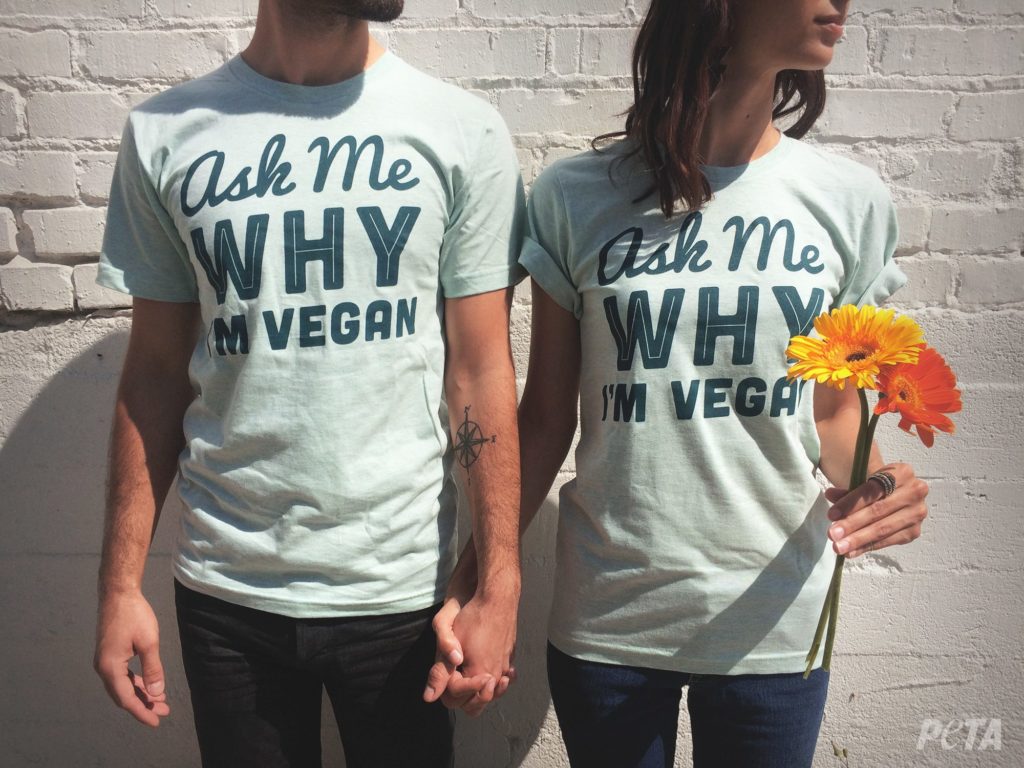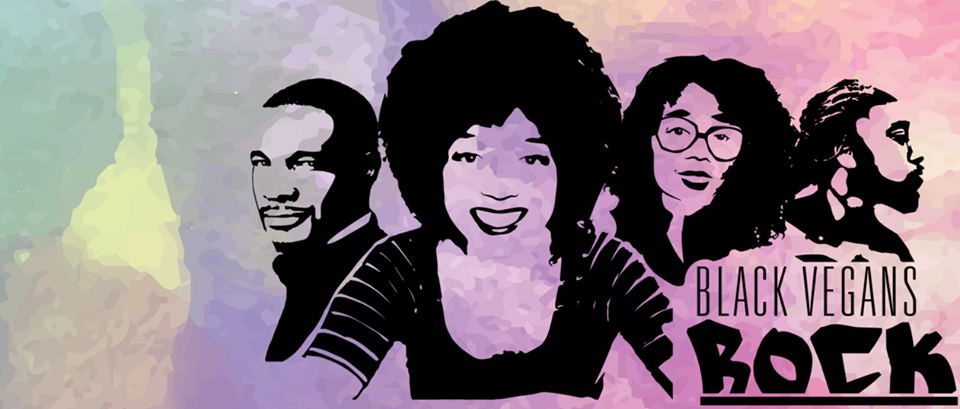Vegetarian and vegan lifestyles transcend racial identities, but you wouldn’t always realize that when looking at popular vegan promotion sites. For many cultures, vegetarianism is more than just a trend. Leading a plant-based lifestyle is strongly encouraged in religions such as Hinduism and Buddhism. In fact, here’s a fun tidbit for you: the country with the most vegetarians is India.
Even so, in Western media, vegans and vegetarians are commonly represented by a certain aesthetic. They are often shown to be young, attractive, and overwhelmingly white.

Photo courtesy of PEAT (People for the Ethical Treatment of Animals) on Facebook
Perhaps the lack of representation in popular vegan/vegetarian culture is the reason the experiences of people of colour are being used as shock advertising. Last year, a vegan Twitter account released an image of a black man hanging from a tree next to a pig. The tagline read “Then we had racism, now we have speciesism” (the tweet has since been deleted, but can be seen in this article).
This isn’t the first time that a controversial ad relating the meat industry to an act of racial oppression has sparked controversy. In 2003, PETA (who is no stranger to controversial advertising) released an ad relating the poultry industry to the Holocaust.
There are a number of emotions that come to mind seeing these ads including shock, disgust, anger. So why do they keep getting made?
To understand the motivation behind these comparisons, it is important to keep in mind that veganism is based in part on the idea of “speciesism.” A major part of vegan philosophy is that animal lives are equal to human lives. So with that being said, what is the big deal with these advertisements?
The issue is that POC are virtually never portrayed in large-scale vegan advertising and promotion, and when they are, it is to serve as a metaphor for violence and tragedy. The advertisements also present the two issues—racism and animal rights—as existing in two separate time periods. It’s taking a part of history that continues to affect society today and using it to provoke a reaction.
In response to this lack of representation, online communities have come together to give voice to racialized vegetarians and vegans. These groups include Black Vegans Rock, a blog and Facebook community that serves to profile the achievements of black vegans in the animal rights community and community at large.

Photo courtesy of Black Vegans Rock on Facebook
Sure, these controversial ads have us talking, but for all the wrong reasons. The uneasiness one feels at the sight of one of these ads isn’t for the meat industry, but for the insulting portrayal of human suffering. If groups want to get their message across, they cannot keep isolating large parts of their prospective audiences.
Vegetarianism and veganism is more than an aesthetic. At its very core, it’s about respect, for animals and people alike. It’s time activists put those values at the forefront of their advertising.


